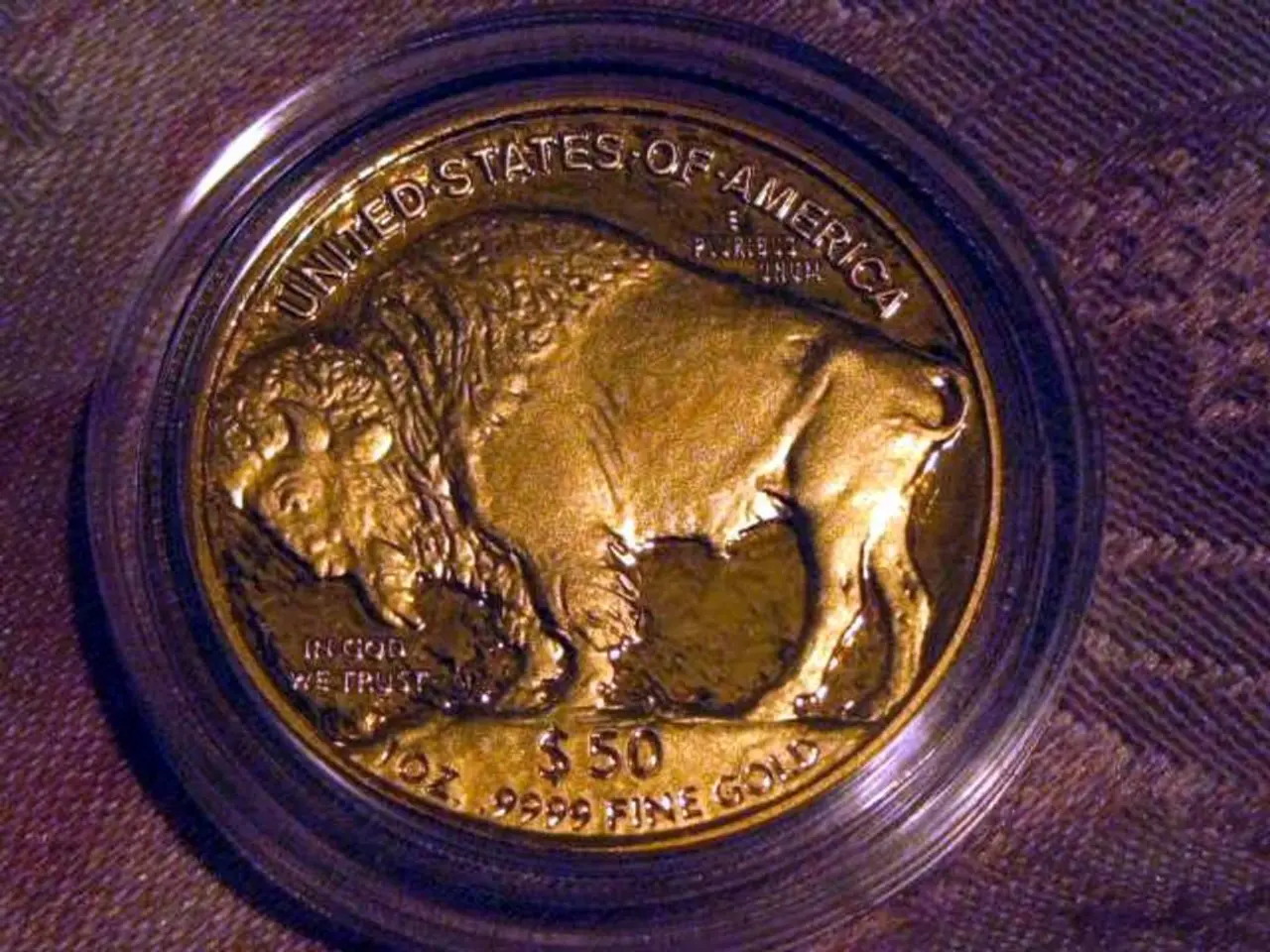Battle for Dominance of the US Dollar
In a recent debate, Ellie Groves, head of strategy at State Street Investment Management, and David Marsh, chairman of OMFIF, discussed the uncertain future of the US dollar as the world's supreme transaction and investment currency. The debate took place in the broader context of geopolitical instability and the fractured world described in Marsh's book, Can Europe Survive? The Story of a Continent in a Fractured World.
Questions about the long-term viability of the dollar have been building for years, and recent developments have intensified doubts. The chaotic foreign, economic, and trade policies of the US government, particularly since Donald Trump returned to the White House, have contributed to these concerns.
The debate did not specify which currencies are being compared to the dollar, but the most potent rivals are likely to be the euro and the Chinese renminbi, alongside emerging digital currencies like stablecoins and central bank digital currencies (CBDCs).
The European Central Bank and the People's Bank of China have both indicated ambitions for their currencies to play more significant roles in the global financial system, potentially challenging the US dollar's dominance. Analysts expect moderate volatility but acknowledge the euro as a major global currency capable of rivaling the dollar in trade and investment.
Stablecoins such as USDT (Tether), USDC (USD Coin), and newly launched PYUSD (PayPal USD) are becoming central in payment systems, facilitating efficient cross-border transactions and offering digital alternatives to traditional currency usage. CBDCs issued by various central banks hold the advantage of sovereign backing and legal tender status, with ongoing pilots aiming to enhance cross-border interoperability.
Gold also remains a critical reserve asset amid uncertainty, but it is not a direct currency rival to the US dollar. Instead, it is seen as a safe haven in times of geopolitical and economic turmoil.
The debate did not provide a definitive answer about the future of the US dollar's status as the world's supreme currency. However, it is clear that the euro, renminbi, stablecoins, and CBDCs represent significant challenges to the dollar's dominance. The US dollar's dominance may decline modestly but is likely to remain paramount, with rivals gaining shared influence rather than a full displacement within five years.
The debate focused on the pros and cons of the dollar and other leading currencies, providing valuable insights into the ongoing discussion about the long-term viability of the US dollar as the world's supreme transaction and investment currency. The uncertainty surrounding the US dollar's future role in the global financial system is likely to continue, making it an important topic for further debate and analysis.
- With the increasing popularity and influence of the euro, Chinese renminbi, stablecoins, and central bank digital currencies (CBDCs), Ellie Groves and David Marsh's debate on the uncertain future of the US dollar as a global transaction and investment currency has become particularly relevant.
- The increasing prevalence of digital currencies like stablecoins, such as USDT, USDC, and PYUSD, has made them central in payment systems, posing a significant challenge to the US dollar's dominance in cross-border transactions.
- As the European Central Bank and the People's Bank of China aim for their currencies to play larger roles in the global financial system, and with CBDCs showing benefits like sovereign backing and legal tender status, the US dollar may face competition in terms of trade, investment, and industry, potentially leading to a decline in its dominance over the next five years.




